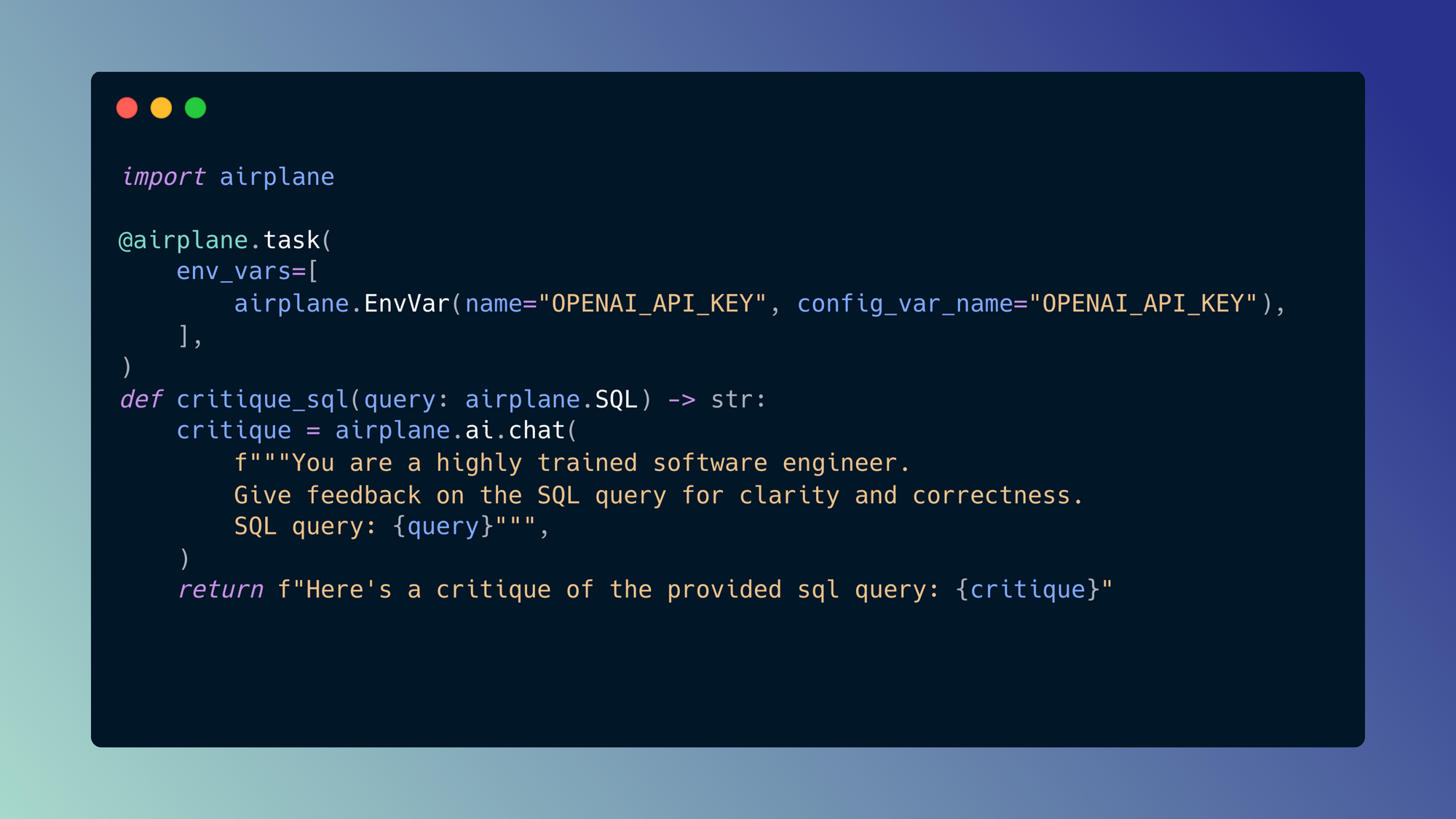Airplane lets you transform scripts, APIs, and SQL queries into UIs and workflows for your team in minutes. If you have feature requests you'd like to see in future changelogs, reply and let us know!
Since our last changelog, we've rolled out AI SDK methods, webhooks, entity creation and editing in Studio, and more.
AI SDK methods
You can now quickly integrate generative AI into your applications with AI built-ins. Send messages to an LLM and define custom AI functions to assist with summarization, classification, and more.
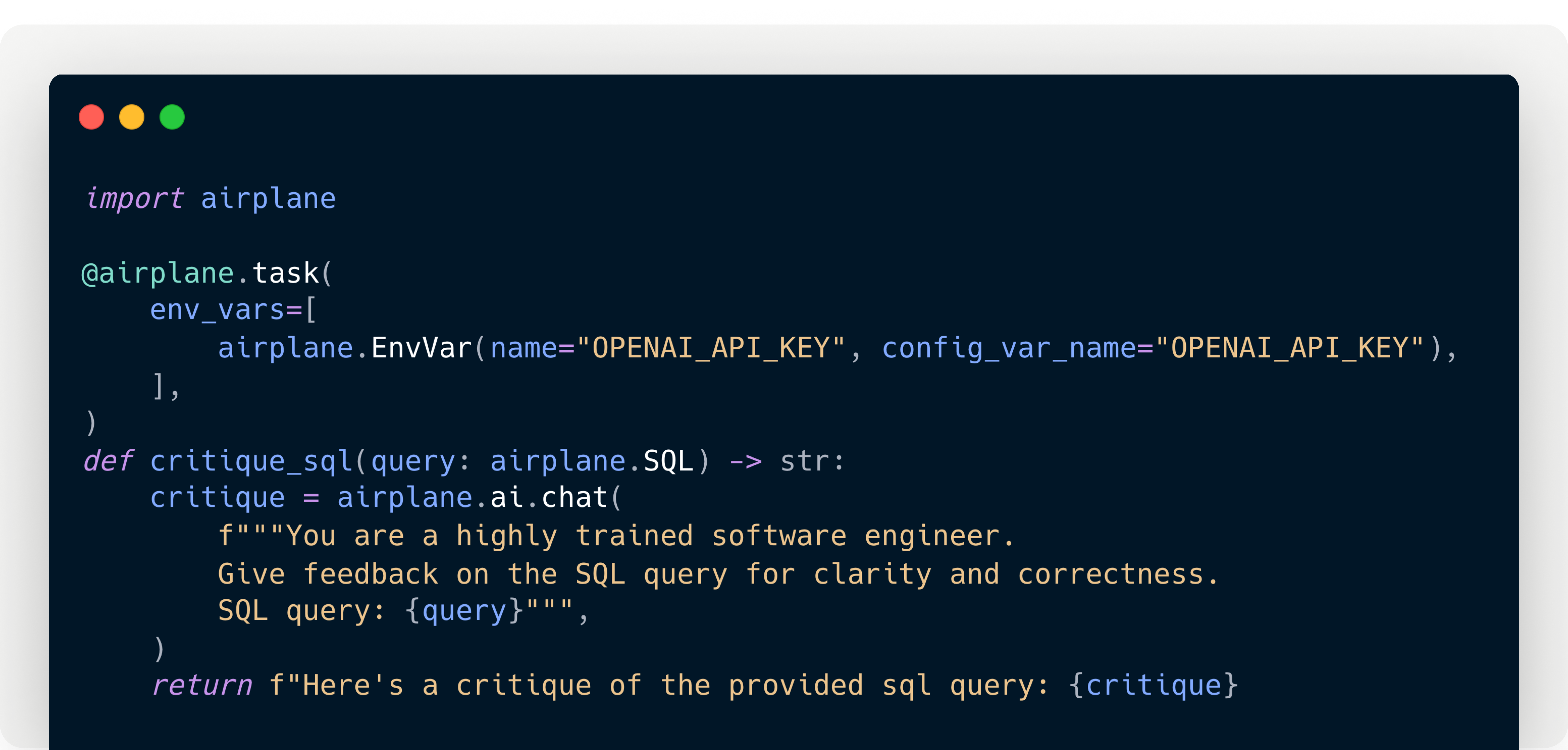
Check out our AI SDK methods docs →
Webhooks
Airplane Tasks can now receive webhooks. Adding a webhook to a task allows the task to be triggered using a secret URL, which lets you use the task to process third-party events as they occur. For example, you can set up a Stripe webhook to run a task when someone signs up for a new subscription.
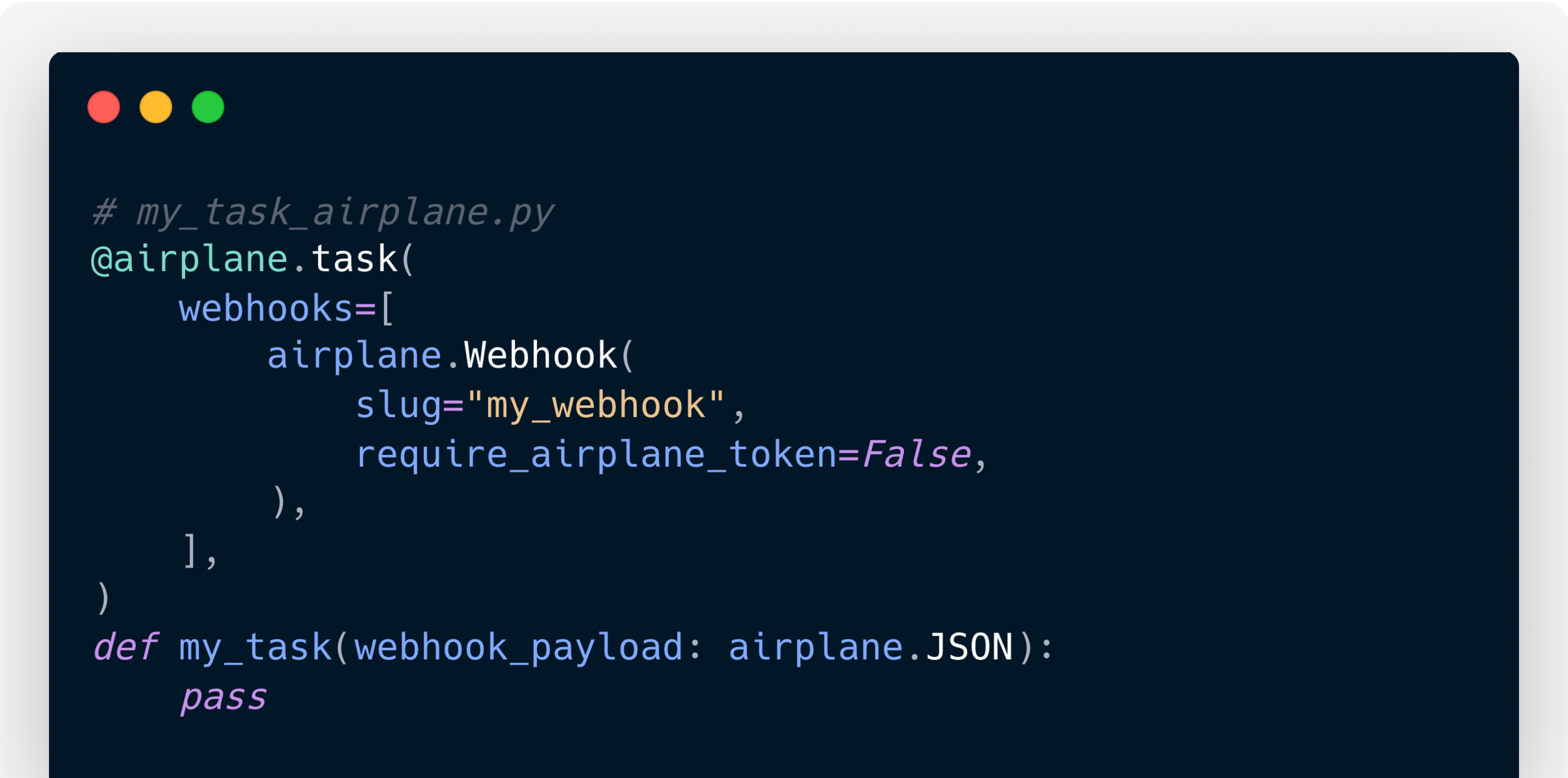
Entity creation and editing in Studio
You can now create and edit tasks and Views in Studio using the same UI from the main Airplane app. This makes it easy to edit fields such as parameters or schedules.
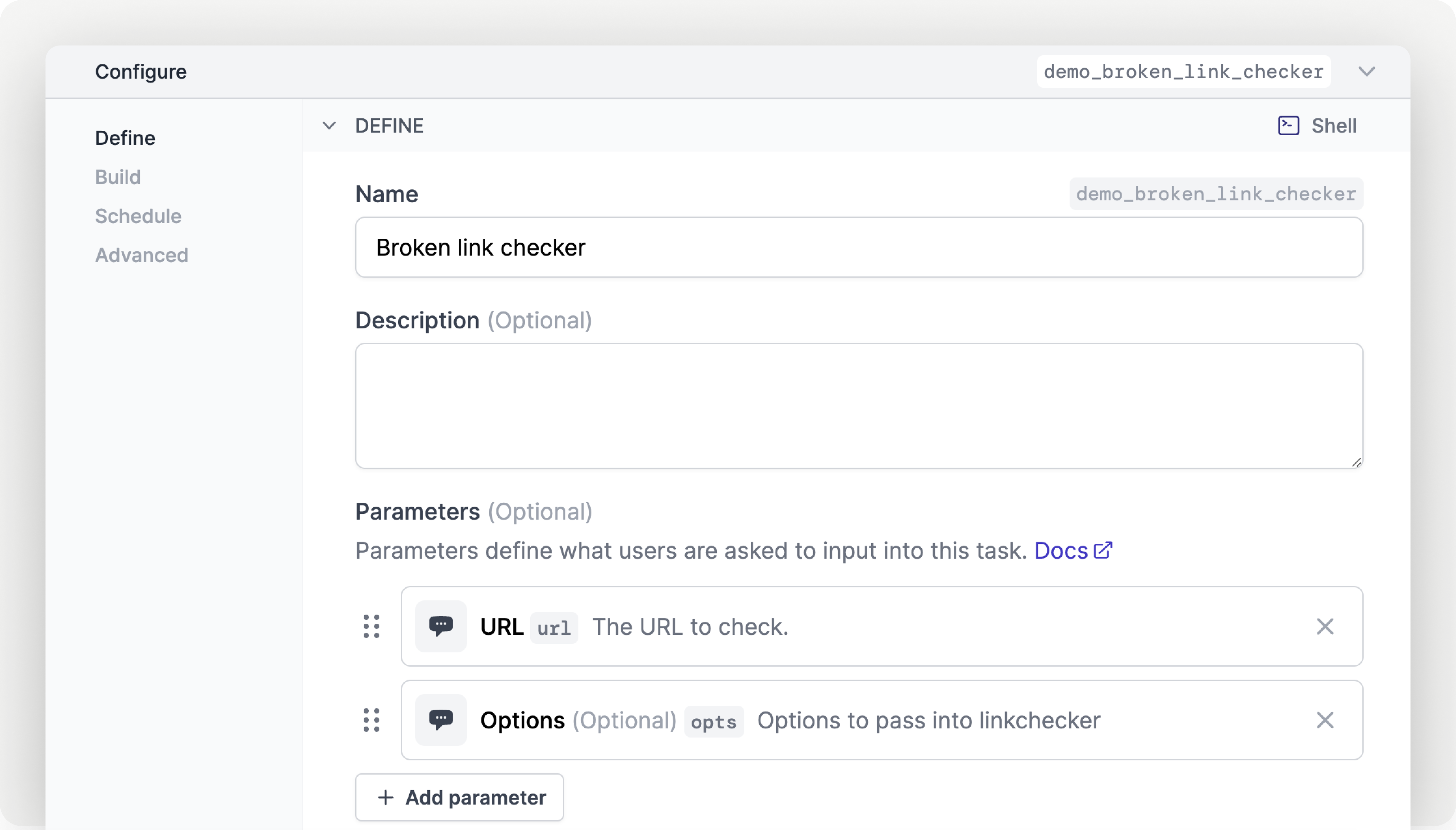
Log drains
Teams on enterprise plans can now use log drains to stream Airplane audit events to their own observability systems. “Drains” can be configured for Datadog, Open Telemetry, or webhook-based collectors. Once complete, Airplane events can be processed and viewed inline with all other log events in your observability stack.
Check out our log drain docs →
ARM support
You can now run self-hosted agents and tasks on ARM architecture. ARM processors are seeing increased adoption in data centers and are now offered by most cloud providers as an alternative to x64.
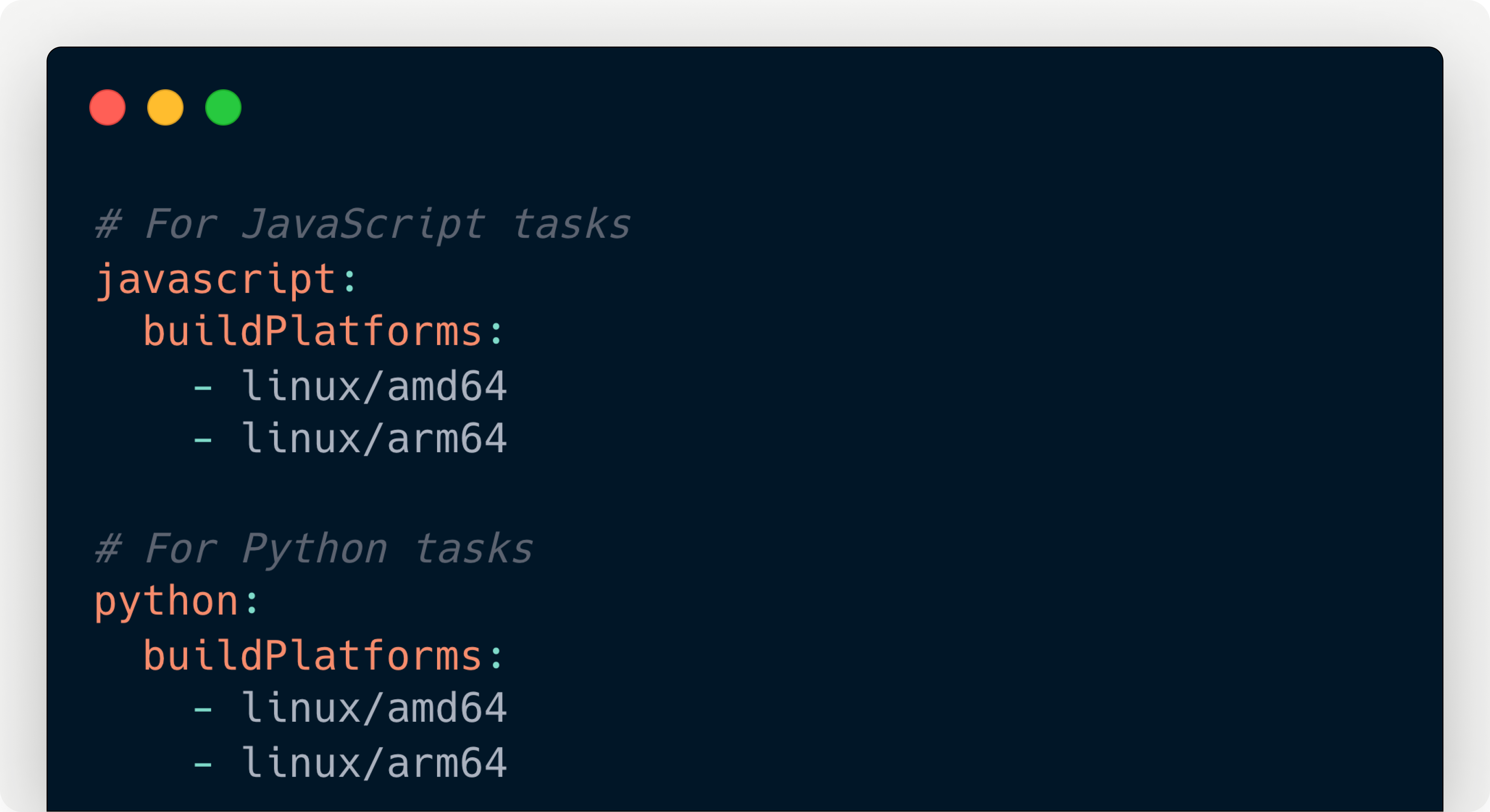
Improvements and fixes
- Permissions improvements - You can now set permissions on a per-environment basis, allowing you to granularly manage permissions. You can also specify permissions within the task definition using code. This streamlines permissions management and facilitates easier version control. Check out our docs for more information.
- Conditional constraints, environment variables, and Docker commands - Tasks can now conditionally add constraints, environment variables, and Docker commands using JavaScript templates. If a template returns null, the corresponding value will be omitted. Check out our docs to learn more.


